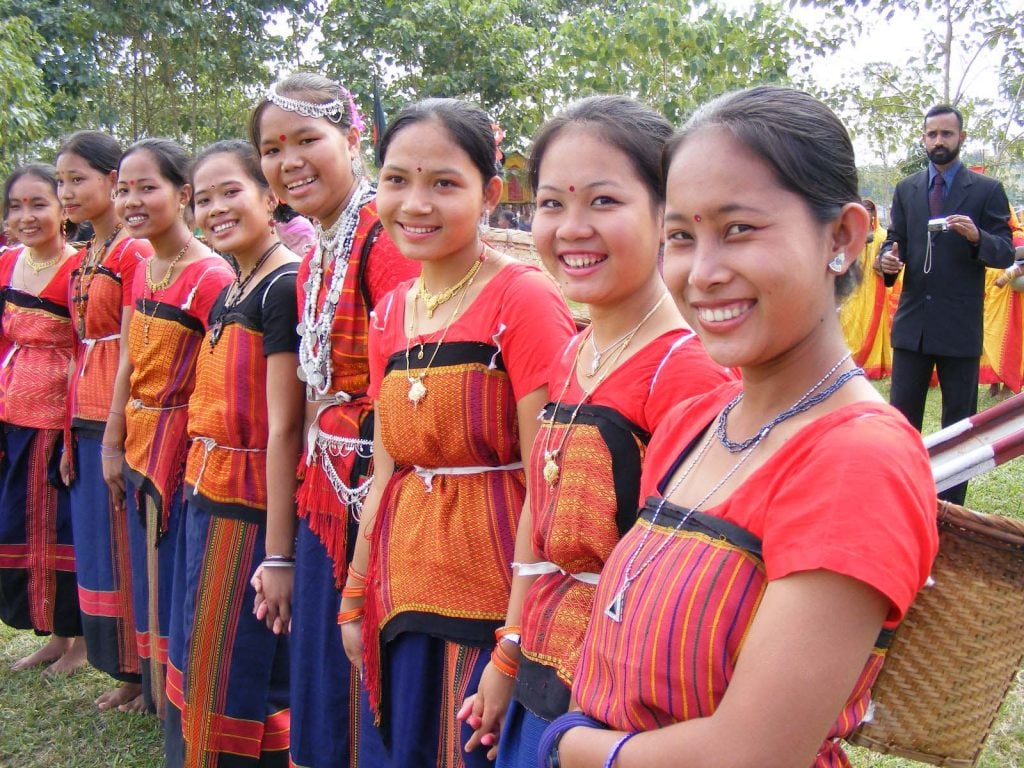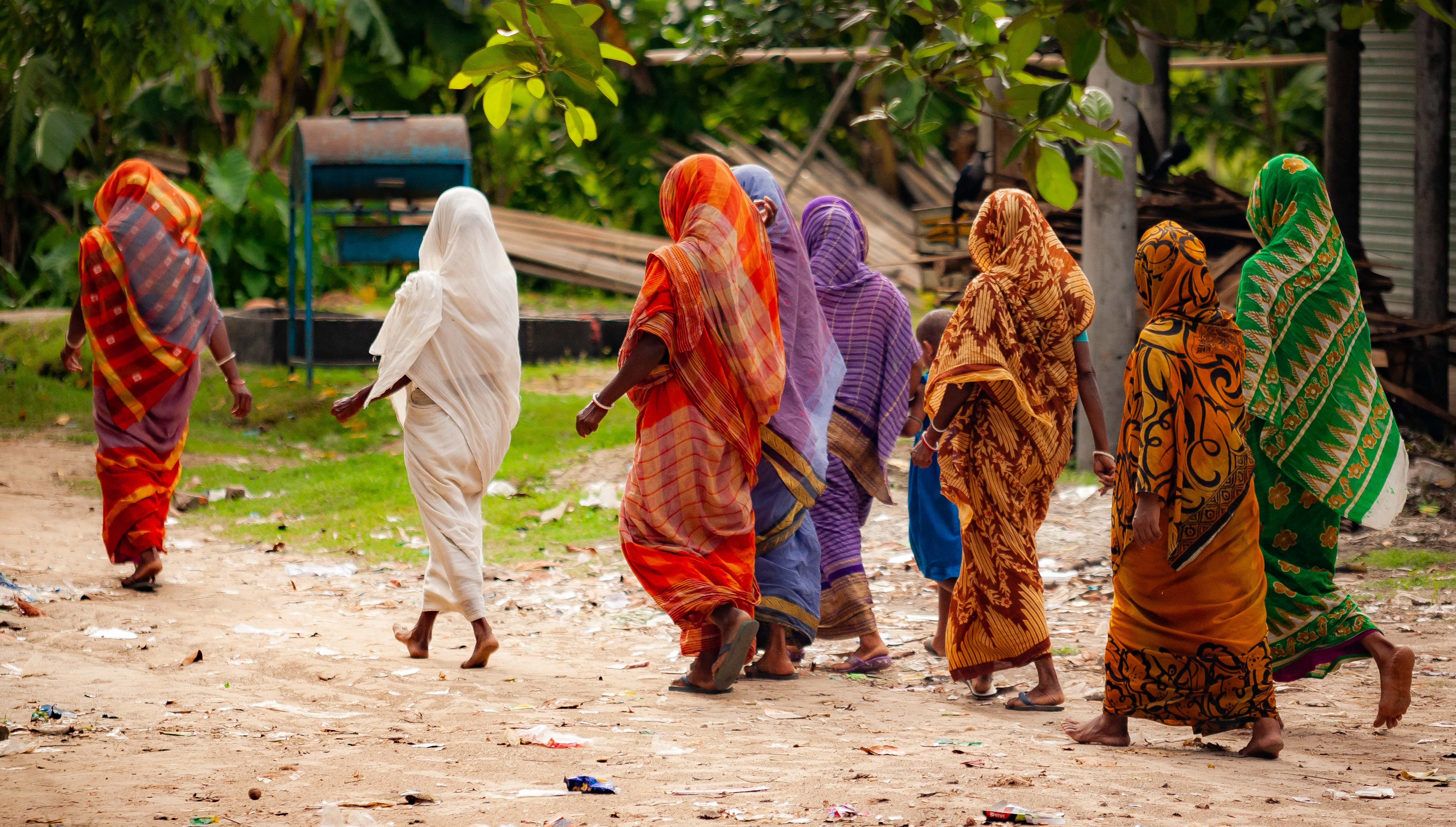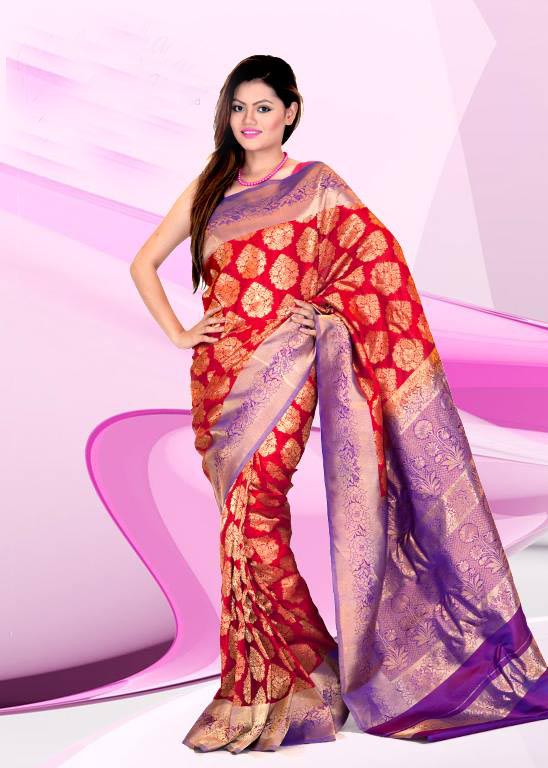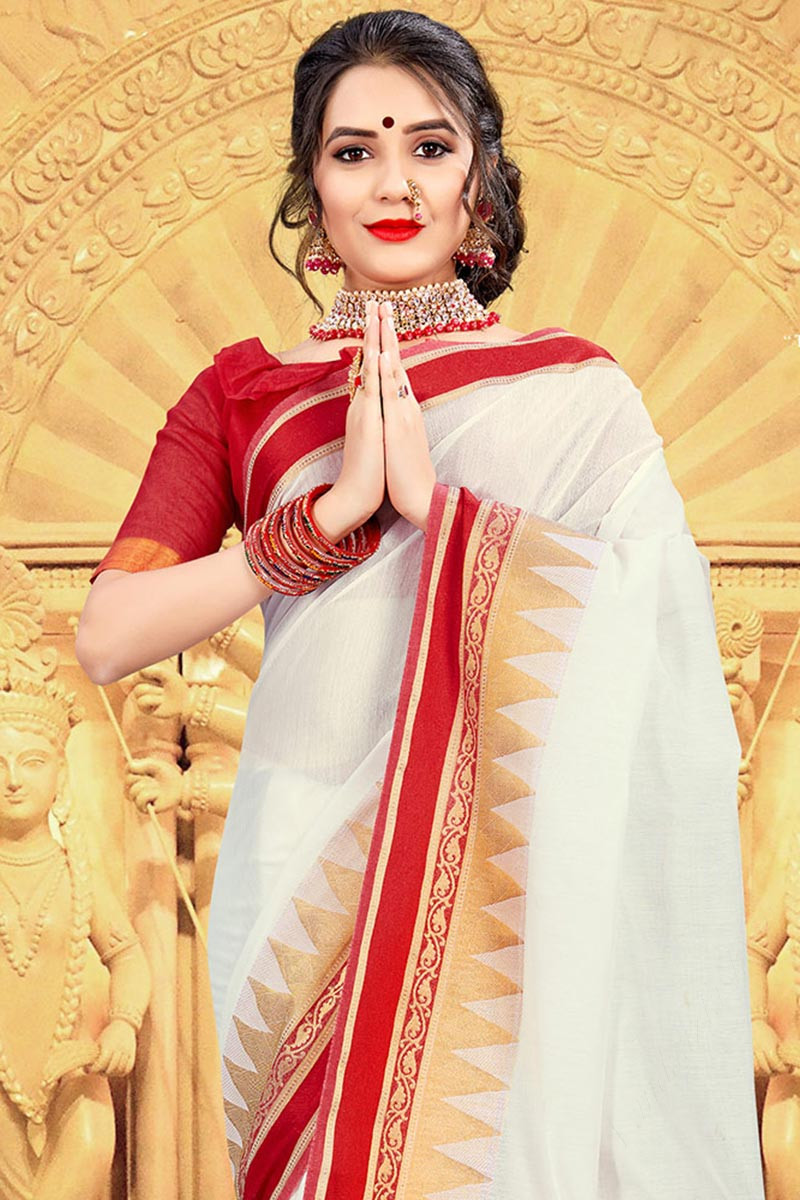
Bangladesh Independence Day Embassy Network
In Bangladesh, one of the largest tribal communities is known as the 'Chakma'. Tribal fashion and its trend depend on their culture, language, religion, and tradition, which are identical for an ethnic person or group. Tribal clothing may range from a single piece to an entire outfit of artifacts that identify the person as a representative of a certain tribe.
Fashion Bangladesh Fashion Dress
National dresses are the traditional clothing of the Bangladeshi lifestyle. From a neutral point of view, Bangladeshi women are now influenced by India. Tribal of Bangladesh has a unique style and traditional dress. Muslims of Bangladesh wear Panjabi and Pajama; on the other hand, Hindus wear Dhuti.

Traditional Dress of Bengal For Men & Women Lifestyle Fun
Bangladeshi Culture & Society Hierarchy. Bangladesh is a hierarchical society. People are respected because of their age and position. Older people are naturally viewed as wise and are granted respect. Bangladeshis expect the most senior male, by age or position, to make decisions that are in the best interest of the group. This is also valid.

Indigenous (Tribal/Ethnic) People of Bangladesh Their Belief
The national dress of Bangladesh holds immense symbolism and cultural significance. Each component of the attire carries a deep meaning, representing the values and traditions cherished by the Bangladeshi people. The colors, patterns, and fabrics used in the national dress often reflect the natural beauty of the country, with vibrant hues and.

National Dress of Bangladesh WhatsAnswer
The images are inspired by cultural terms that represent the traditions of Bangladeshi dress and reflect the heritage. Designer 1:. The color of traditional Bangladeshi costumes is a tangible expression of traditional culture, and the changes of various connotations and representations originate from changing ideological concepts, exhibiting.

Bangladeshi girls dressed in colorful traditional dress Stock Photo Alamy
The culture of Bangladesh is intertwined with the culture of the Bengal region of the Indian subcontinent.It has evolved over the centuries and encompasses the cultural diversity of several social groups of Bangladesh. The Bengal Renaissance of the 18th early 19th centuries, noted Bengali writers, saints, authors, scientists, researchers, thinkers, music composers, painters, film-makers have.

National Dress of Bangladesh WhatsAnswer
1. Traditional Clothing of Bangladesh. Sari: Epitome of Elegance The sari, a versatile and elegant garment, holds a special place in the hearts of Bangladeshi women. It consists of a long piece of fabric, typically made of silk or cotton, which is draped around the body in various styles. The sari showcases intricate patterns, vibrant colors.

Traditional Dress of Bengal For Men & Women Lifestyle Fun
Panjabi is one of the oldest cultural dresses in Bangladesh and expresses our culture to the fullest extent. Nowadays you will find different types of new Panjabi collections with enormous designs, comfortable materials, and stylish looks which are suitable in this modern age of 2022. The prospect of looking stylish, elegant, glamorous, Panjabi.

Bangladesh, Habiganj Prov, Women Traditional Clothes, 2009, IMG 8477
The traditional dress of Bangladesh is a colorful and intricate reflection of the country's rich culture. From the elegant saris to the comfortable lungis, each garment tells a story. It is through these traditional dresses that people connect with their roots and proudly showcase their heritage in cultural events and festivals. The world of.
Fashion Bangladesh Fashion Dress
The common dresses for girls are 'Salwar-Kamiz-Urna' (trouser-long skirt and a covering for breast), but for women Sari-blouse-petticoat, all are Indian garments. [Source: "Bangladesh Culture: A Study of the South Para of Village 'Silimpur'" by Kamrun Nahar, September 2, 2006]

Tradtional Dress of Bangladesh M's Adventures
This traditional attire is an integral part of Bangladeshi culture, and has a rich history and significance. The saree is a long piece of fabric, typically made of silk or cotton, that is draped around the body in a variety of styles. It is worn by women of all ages and is a symbol of grace, elegance, and femininity.

Pin by zpto on Ladies Fashion In Bangladesh Bangladeshi clothes
Bangladesh is primarily a Muslim and conservative country and so there are certain things one should not wear. Female visitors should maintain a conservative dress standard and avoid showing much flesh beyond head, hands, and feet. Long lightweight skirts (or trousers) with a cotton blouse tend to work best for business situations.

Bangladeshgirlstraditionaldress
September 27, 2012 M's Adventures. Red and white shalwar kameeses. Color, colorful, vibrant, and so on are some of the words used to describe the traditional dress of Bangladesh. It's not only women who wear colorful clothing. Bangladesh is known for its garment industry and the clothes reflect the bounty of this industry.

Traditional Attire of Bangladesh ABAC Technologies Ltd
Bangladesh Traditional Dress. Women's Clothing. Shari is the main and traditional dress of Bangladeshi women and some young female also wears salwar kameez. It is considered the national dress of Bangladesh for Women. In urban areas, women can also be seen wearing Western clothes. The women also have different preferences as to which types of.

Buy Chiffon Traditional Bengali Saree In White Colour Online
Folk Culture of Bangladesh and its Different Elements . The culture that has been followed and maintained by the common people through the ages is generally known as folk culture. There are many elements of folk culture. Following is a discussion on the folk culture of Bangladesh and its elements.. Dress and Ornaments: Most ethnic minorities.

Bangladesh Dresses Fashion dresses
The majority of the population (98 percent) is Bengali, with 2 percent belonging to tribal or other non-Bengali groups. Approximately 83 percent of the population is Muslim, 16 percent is Hindu, and 1 percent is Buddhist, Christian, or other. Annual population growth rate is at about 2 percent.